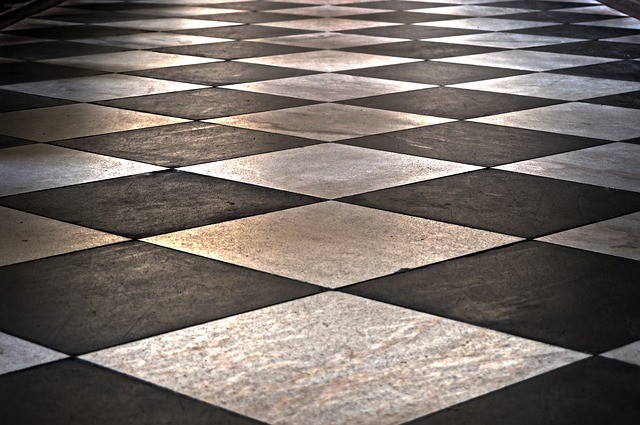The perspective from below
Sharks attack their prey from underneath,
sometimes at speeds of up to 35 miles an hour.
At first you think why is there
a freight train underwater? And then
the ocean leaks red and you think
Oh.
The kitchen floor attacks its prey
with gravity. It snaps bone
just as easily as a mouth.
A table corner can be
razor sharp too.
If you hit the soft tissue
at the back of a skull
with 160 pounds of your own
body weight, it will gush too.
You know immediately.
You’ve endangered yourself.
Swam out too far in the middle
of your living room, without
the lifeguard of your cane.
You see red pool
on the linoleum. Oh.
Clutch skin, kick
sideways, crawl
to your cell phone
like a shoreline.
There’s no point in shouting Help!!
before your feet slip and the floor
becomes a thing capable
of drowning you.
The spectators left your beach, stopped
watching your brain fight and splash
years ago. Because the doctors insisted
that gash isn’t serious. This puncture
should heal on its own.
There’s no evil to punch
on the nose, unless you want to
beat yourself up.
No need for 600 surgical-grade
internal stitches and staples
to keep your fascia and form
intact; to create the jagged line
that keeps you
interesting. But their scars will be
fascinating and featured
in People Magazine, along with
that harrowing quote, the one
about the exact moment you thought
I’m going to die.
I fight with boring things:
concrete, granite, hardwood. I fear.
I have no flight response.
These type of attacks, they happen
to 1 in every 11.5 million people.
What are the odds that I’m my own
daily shark bite? What are the odds
that someone would believe
how terrified I am of dry land?
Trinity
I was raised under stained glass. On Sundays
the parish asked the Lord to heal my legs;
to give my parents a miracle. I tried to kneel
for them. I sang glory and Hosanna the loudest.
But I knew I’d never wake up walking.
So I never asked why me or what if? God
was busy with other things.
I was just one middle class disabled girl
with decent health insurance. But
when my best friend’s all-star body
started to paralyze itself nerve by nerve,
the doctors didn’t find any answers. But they
still ran enough tests to flatline her bank account.
When she woke up unable to crawl or swallow,
she kept trying to reach you. God
all she heard back was static.
You can multiply that noise
by 8 billion people praying
for answers.
God, do their voices ring so loud
in your head that you doubt
your own divine judgment? Turned
the Holy Trinity into Psychologist,
Neurologist, Physical Therapist
so we would all feel better? Did you create drugs
like Abilify to enable us to stand up without you?
Is it easier to hand out prescription after prescription?
Prescribe to us instead of listening?
It’s no wonder
we have turned pharmacies into churches.
Pray to the insurance companies for
a whole month’s worth of Holy Eucharist.
We break pills like bread into smaller and smaller
milligrams to make them last longer. So many
of them dissolve so easily
on the tongue. We need these blessed uppers
to carry us closer to Heaven, help us swallow pain
when we fall back down. God knows
how much it hurts to drop copays
into so many collection boxes. He sees
how we read warning labels like
the new Gospel.
Be careful not to overdose. God
only has time to lay hands
on some of us.
 Natalie E. Illum is a poet, disability activist, and singer living in Washington, DC. She is a 2017 Jenny McKean Moore Poetry Fellow, as well as a non-fiction editor forThe Deaf Poets Society Literary Journal. She is a founded board member of mothertongue, a women’s open mic that lasted 15 years. She competed on the National Poetry Slam circuit and is the 2013 Beltway Grand Slam Champion. Her work has appeared in various publications and on NPR’s Snap Judgement. Natalie has an MFA from American University and teaches workshops across the country. You can find her on Instagram and Twitter as @poetryrox.
Natalie E. Illum is a poet, disability activist, and singer living in Washington, DC. She is a 2017 Jenny McKean Moore Poetry Fellow, as well as a non-fiction editor forThe Deaf Poets Society Literary Journal. She is a founded board member of mothertongue, a women’s open mic that lasted 15 years. She competed on the National Poetry Slam circuit and is the 2013 Beltway Grand Slam Champion. Her work has appeared in various publications and on NPR’s Snap Judgement. Natalie has an MFA from American University and teaches workshops across the country. You can find her on Instagram and Twitter as @poetryrox.

Leave a Reply